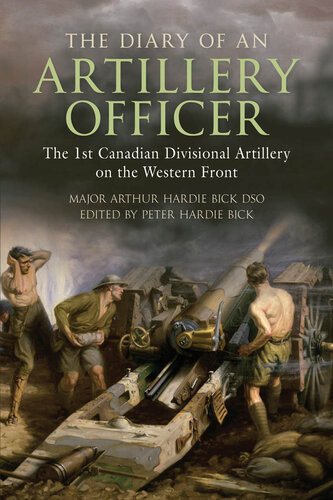

Most ebook files are in PDF format, so you can easily read them using various software such as Foxit Reader or directly on the Google Chrome browser.
Some ebook files are released by publishers in other formats such as .awz, .mobi, .epub, .fb2, etc. You may need to install specific software to read these formats on mobile/PC, such as Calibre.
Please read the tutorial at this link: https://ebookbell.com/faq
We offer FREE conversion to the popular formats you request; however, this may take some time. Therefore, right after payment, please email us, and we will try to provide the service as quickly as possible.
For some exceptional file formats or broken links (if any), please refrain from opening any disputes. Instead, email us first, and we will try to assist within a maximum of 6 hours.
EbookBell Team

0.0
0 reviewsIn the First World War the Canadian Field Artillery led the way in artillery technology and tactics. By coordinating the intelligence reports from sound ranging, flash spotting, and ground observation teams, they became one of the most effective fighting units in France. These tactics were first used at Vimy Ridge in April 1917, destroying most of the German artillery before the assault began. The close coordination between the attacking infantry divisions and the Canadian Field Batteries not only allowed the infantry to advance very close to the falling shells but also gave them confidence that, unlike at the Battle of the Somme, the Germans wouldnt be able to recover in time to defend their positions properly.
The Diary of an Artillery Officer, written by Major Arthur Hardie Bick, DSO, covers the work of the 1st Divisional Artillery in 1918 when it spearheaded the attacks on Amiens, the Vis en Artois Switch (defending the Hindenburg Line) and the Canal du Nord, and the final blows in Germanys defeat.